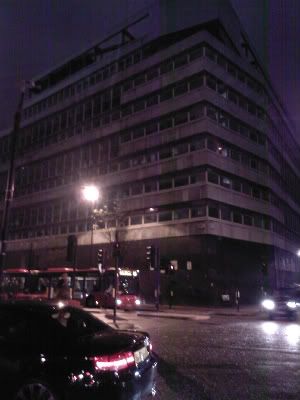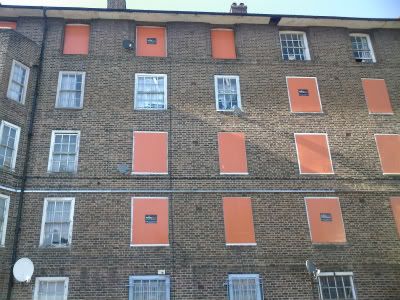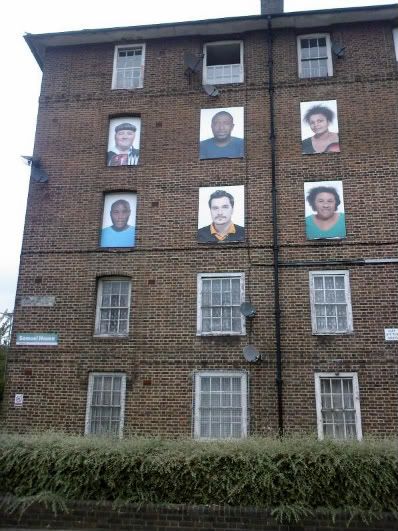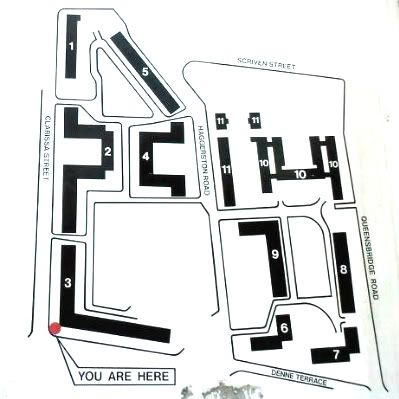This Is Not A Gateway is a forum for urban discussion - planning, architecture, art, protest. They have an incredibly useful
event listing for city-related talks, exhibitions and so on in the capital, and also an annual festival - which is this weekend, the 23rd - 25th October.
Here is the full festival programme; below a selection of the most interesting events. Most are based at Hanbury Hall, 22 Hanbury St, E1 6QR - or elsewhere in the East End. In chronological order...
Denitza Toteva: Integration Through Gardening: Perspectives From Berlin
Friday 23 / Hanbury Hall 11:00- 12:00
Re. my previous post on
What If Projects and their appropriation of vacant land for community gardens and 'plant rooms':
Can intercultural gardens play a role in urban integration? Exploring community gardens in Berlin and London. The discussion also examines the conceptual framework of integration in different political contexts. Speakers include Nina Pope (Artist) and Alexander
Vatchev (Gardener).
Tomorrow's Thoughts Today Productive Dystopias, Or... An Architecture Of Unintended Consequences
Friday 23, 20:00 - 21:30 / Hanbury Hall
Can we conceive of an alternative practice where current power structures of patronage and regulation are channeled, subverted or engaged in new ways? And how might dystopian visions paradoxically offer a productive way of approaching the urban question? Panelists: Tomas Klassnik (Klassnik Corporation), Elena Pascolo (Urban Projects Bureau), Austin Williams (Future Cities Project), Finn Williams (Common Office), Karl Sharro (ManTowNHuman) Alex Warnock-Smith (Urban Projects Bureau, AA) and Amin Taha.
Fugitive Images Should Socially Engaged Artistic Practices Generate Social Cohesion?
Saturday 24 12:30-13:30 / Rehearsal Room
C.f. my recent post on
I Am Here, the photographs on a Haggerston council estate - and Mango's comments about whether this was genuine community engagement or just Stuff White People Like...
A discussion about the emergence of socially and politically engaged artistic practices. A close look at their motivations, aims and methodologies as well as potential problems. Panelists include, Marsha Bradfield (Artist, Educator and Curator), Dave Beech (Free Art Collective) and Mark Davy (Director of future\city). Chaired by Bill McAlister (Director of ICA 1970-1990)
Also a tour of I Am Here at 11:00 on Saturday 24, meeting at Suleymaniye Mosque, E2 8AX.
This Is Not A Gateway: DIY Urbanism / Influencing The City: Legalities Of Space
Saturday 24 14:00-15:00 / Rehearsal Room
Do cultural and political movements only produce change when they are translated into law? Is law not an arena urbanists should know significantly more about and participate within? What research are lawyers undertaking within the urban field? The discussion explores a spectrum of examples that highlight how law has been employed to propel urban change and the ways urbanists can take better advantage of the opportunities it provides. Speakers include Bill Parry-Davies (Lawyer) and Elizabeth Fonseca (Environmental Quality Manager)
Olivia Tusinski, Sommer Spiers: Urban Regeneration: Views From Above & Below
Saturday 24 14:00-15:00 / Main Hall
Case studies in urban regeneration, taken from neighbourhoods in Istanbul and London, will be examined against a backdrop of prevailing trends of privatisation of urban land, entrepreneurial governance, and political aspirations to retain/attain ‘global city’ status.
David Knight - Birth Of Autonomous London
Sunday 25 13:30-14:30 / Hanbury Hall
An immersive, fictional presentation covering the Birth of Autonomous London: the taking of the waterways, permitted development traveller cities, sewage line thoroughfares, radicalised ‘development corporations’.
Gavin Grindon, Anna Feigenbaum: Creative Resistance Research Network
Sunday 25 17:00-18:00 / Main Hall
Discussion and screening to launch the CRRN; a collective research project investigating street praxis, dissolving artists, improvisational militancy, politics of invisibility and space reclamation. CRRN facilitates a conversation about the potential of the street as a site for radical politics.
Film: A13 Road Movie by Rayna Nadeem & Stuart Shahid Bamforth (Dekko Productions)
Saturday 24 11:30-12:30, 16:30-17:30 / Library
Sunday 25 11:30-12:30, 16:30-18:30 / Library
A13 Road Movie is a documentary that uncovers some of the complexities along the road that connects the city to the infamous Thames Gateway. Billy Bragg, Tory MP David Amess, Pakistani restaurateurs, vicars, Ford union reps, Tilbury dock-workers, West Indian allotment-holders, and lay-by burger van proprietors, provide testimony to the history, the myths and the folklore of this much-travelled route from the East End to the Essex coast.
Artists exhibiting in Hanbury Hall:
Constantin Demner - WALK Intervention in public space in East London, UK, using the language of street art to bring local history to life in the imagination of passers-by.
Isidora Ilic - Youtopia A video that explores the theme of leaving and searching for a utopian place. Questioning artificially built towns and constructed countries such as Milton Keynes and Yugoslavia.
Ben Elwes - It’s Nice To Know That Some Things In Life Are Certain A reflection upon advertising methods within urban environments, their increasing scale, sophistication of psychological strategies, and technologies employed in urban spaces, to target consumers.
See you there?













